The former BET CEO gets candid about her experience as a Black girl boss in the entertainment boardroom, and her hopes for the future of women in power.
They say never to meet your heroes, but meeting the living legend that is Debra Lee was nothing less than a once-in-a-lifetime opportunity and a dream come true for someone who aspires to take over the media industry someday.
More than just the head boss in charge of BET for over three decades, Lee has single-handedly paved the way for countless Black women, women of color, and femme-identifying persons to serve as a shining example of what women can and should be in the entertainment industry when we’re given the opportunity to shine through with our Black girl magic.
We spoke on the heels of her annual Leading Women Defined Conference and the debut of her new memoir, I Am Debra Lee, which reveals her life, career, and experiences in media as a trailblazing executive. While some outlets have been in a tailspin frenzy regarding the book’s details of her personal life outside of the boardroom, I wanted to have the opportunity to get to know who Debra Lee was — and continues to be — as the woman in charge of curating some of the most phenomenal programming I had ever seen myself reflected in as a young Black girl.
While I was unable to attend the “The Rise to the Top of the Entertainment Industry panel featuring Lee and moderated by filmmaker, producer, and author Crystal McCrary at The Paley Center for Media, my God bestowed upon me another opportunity to connect virtually with the industry veteran one-on-one during an intimate phone conversation.
Once Lee was able to give her dog to her dog walker and assure that her home could be a quiet one, she happily proceeded with our private talk on her landline to discuss her experience in the industry, the release of her memoir, and her hopes for the future — both for herself and for BET.
D’SHONDA BROWN: What made you finally want to share your story in I Am Debra Lee?
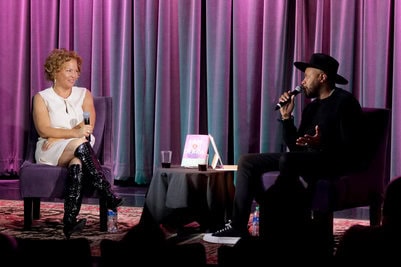
DEBRA LEE: I wanted to tell my story for a long time, and I don’t know exactly why other than I like helping people coming behind me, especially young women.
I still feel like I’m kind of a unicorn out there. There hadn’t even been more than a few Black female CEOs and the media space, and so when I stepped down from BET about four years ago, I looked around and I was surprised that there were still so few. I wanted to tell my story as a way to inspire young African-Americans to know that they could be anything they wanna be. I think authentically telling my story with the ups and downs makes people understand that we’re all human. We all make mistakes and we all have challenges in our life, but we can still be very successful, so that was my goal.
DB: As you say, there’s not a lot of you and we know that there’s more work to be done. What was it like along the road to becoming a woman CEO? How were you able to get there?
DL: The journey was wandering, to be honest. When I left high school, I thought I wanted to be a journalist. Then, I went to law school. I became a lawyer and I didn’t really enjoy that. Luckily, BET was a small client where I worked at the law firm in Washington, DC, and at a certain point, [co-founder] Bob Johnson asked me to come over and start the legal department. I just thought to myself, this is the perfect job. The company is Black-owned, it’s in media, [and] it’s in Washington, DC, ’cause there weren’t and there still aren’t a lot of corporations in Washington, DC, so I thought I was gonna have to move to New York. I accepted the job, started the law department, and stayed in that lane for a number of years.
Little by little I started doing more work on the business side. I ran our publishing group, I oversaw the construction of our studio in Washington, and I learned [that] I really enjoyed the business side of the company. In 1995, I became Chief Operating Officer, and then 10 years later I became CEO. I say all that to say this wasn’t my plan, but it worked out. I enjoyed being a CEO and I was CEO for 13 years, and I just didn’t know it was something that I would be interested in.
I enjoyed managing people, I enjoyed running a [P&L], I enjoyed giving young African-Americans opportunities that they didn’t get other places, and I liked the business of media, the programming, the award shows, the many number of other ventures that we are involved in. We had a design studio for a while; we had restaurants for a while. Starting new businesses really became something I enjoyed and I loved the BET brand.
I love what it stood for. I love focusing on making the programming higher quality and making sitcoms and dramas for our community. It wasn’t a straight line, but I ended up in a good place.
DB: Retrospectively, what was the moment where you were like, ‘Wow, I’m really proud of myself and I’m so glad that I’m in this career‘?
DL: There is so many moments, but let me give you a couple. I think the first time I was just so proud of the company and proud of my role at the company is when BET became the first [Black-owned business] publicly traded company on the New York Stock Exchange. At that point, I was general counsel, and so I led all the legal work and it took us about 10 months to get ready for going public. That was such a high moment standing on the floor of the New York Stock Exchange and having all the Black folks who had worked there all their lives coming up, giving us high fives, ’cause they had never seen a Black company go public before. From a corporate point of view, that was definitely a high point.
From a programming perspective, we took over production of the show called The Game from CBS. The day it debuted, we found out from Nielsen ratings that we had 7.7 million viewers, which is much more than we had ever had for any other show. It was so exciting and I think it still holds the record of the highest-rated premiere of a sitcom on cable.
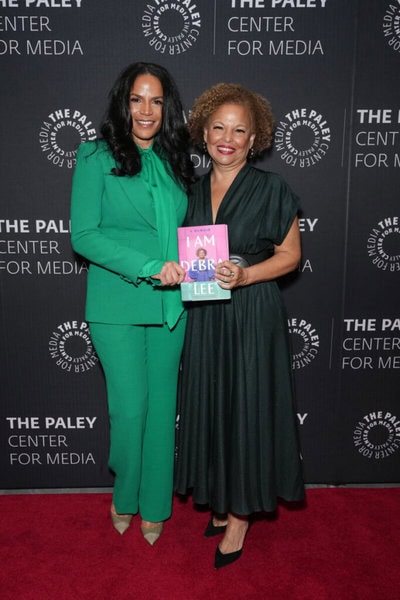
I’ll just name one other moment, ’cause it’s not something most people would think of, but I don’t remember what year it was, but it was at the BET Awards and we were honoring Uncle Charlie [Wilson]. During that tribute, Snoop Dogg came out, Justin Timberlake came out, and Pharrell came out, and it was just such a pop culture moment for me, and it made me so happy. I literally felt like I could drop the mic and walk away at that moment. I said, ‘This is what BET should represent: All cultures coming together honoring someone as wonderful as Uncle Charlie.’
DB: How have you personally seen, amplified, and contributed to the evolution of the BET brand since you began and after you departed?
DL: While I was at BET for 32 years, I definitely contributed to the growth of the original programming strategy. That was my focus when I took over as CEO and our audience was asking for original high-quality content. That was my promise to our audience that hopefully under my leadership we could do that, and we did with such shows as The Game and Being Mary Jane and BET Honors and the award show.
We really focused on making everything authentic and higher-quality and representative of our community and the BET brand. I’m really proud of my leadership at the company [and] we had our mission statement, [which] was to respect, reflect, and elevate our audience, and that came under my leadership.
The reason we needed to better define what we were trying to accomplish is that we started having more competition. TVOne had started, [Oprah Winfrey Network] had started, WeTV had a Black night, VH1 had a Black night. It was important for me to distinguish what BET was all about because our audience expected more from us and we wanted to deliver on that promise. Those three words really directed my time at BET and I hope it still does.
I’ve moved on to other things; I’m on four corporate boards and I just wrote a book. I started two companies: The Monarchs Collective to help get more people of color and women on boards, and the other one is Leading Women Defined, which is about 14 years old.
I have a summit every year for prominent women of color so they can connect and relate to each other and form their own network, and I’m really proud of the work we’ve done there. I’m all about giving back. I’m all about trying to help our community. I went to all-Black schools in Greensboro, North Carolina, so being African-American and being a woman has always been central to who I am. Everything I do relates back to that. I’m proud of what I was able to accomplish at BET, the people that have come through there, whether they stayed at BET or moved on to other media companies, and I’m really proud of what I’ve been doing since then. I haven’t really gotten to retirement yet, so that’s still to come.
DB: We’ve seen a lot of conversations over the past few months about the term “Black entertainment,” “Black TV shows,” or “Black movies.” In your opinion, do you believe that it pigeonholes our work and our art as Black folks, or do you feel like it curates a safe space for us?
DL: I think it more creates a safe space for us. I don’t think any of us should be afraid of the term “Black.” When I hear that attached to media or to television programming, it means that it’s targeted to a Black audience, but we want all people to watch — I mean, that was our motto at BET. We didn’t wanna create worlds that were all-Black; we wanted white characters, Asian characters, and Latino characters, so we try very hard to diversify our programming. I think it’s very important for us as a society to continue to have a focus on Black programming, because if we don’t, it’ll fall by the wayside. You have to be intentional about it.
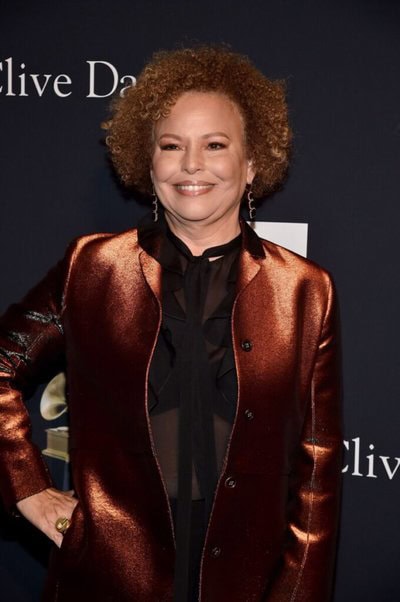
Back to what I’m proudest of since I left BET, I’m proud of all the Black programming that has popped up everywhere: on Netflix, on Apple TV, on broadcast networks, on cable networks. I think BET was able to prove the thesis that if you provide high-quality programming for the Black community, they will come. When I see all these Black shows, it warms my heart, ’cause I think I played a part in that and all the executives and employees at BET play a part in that.
I think it’s important to have Asian programming and Latino programming. I remember the day Crazy Rich Asians came out; I went to the theater to see it, and the theater was half Asian, which I had never seen before, and it was half Black and brown. It just showed that people wanna see good stories and they don’t mind watching good stories about other cultures. That’s how we learn about other cultures; that’s when Ellen [DeGeneres] broke the LGTBQ ceiling.
I think we all need to see ourselves in programming. I don’t think producing programming targeted to the Black community is anything negative or to run away from. We need to do it and we need to continue to see ourselves, but we also need to be inclusive and include other cultures in what we do.
DB: In your experience, what does female empowerment and mentorship look like for a young woman in the entertainment field?
DL: It’s so important to empower women in the entertainment space. Companies need our viewpoint. Young girls need to see Black female CEOs and just female CEOs. If you don’t have women in the boardroom or you don’t have women at your senior team meeting, there’s something wrong. You’re missing the perspective of 50% of our population, and that shouldn’t be the case. The same with different ethnic groups — that’s how companies get in trouble. They make something and a commercial or program and it comes off insulting one group or another and it’s because they don’t have enough diverse people in their management group.
It’s very important to have women in media space [and] in the music industry. I did a lot of work with the Recording Academy and had heard horror stories from women that were either prevented from reaching their full potential or harassed in different ways. There’s still a lot of work to be done.
I was at BET for 32 years and coming out at the other end being CEO, it’s just surprising that we haven’t made as much progress as we should. I think all companies should focus on it. I started [The Monarchs Collective] to help people of color and women get on boards. I started that after [the murder of] George Floyd because I just realized that until we have Black wealth and women with wealth, we’ll never be seen as equal and we really wanna improve these companies and these industries. One way to do that is by having more diversity, so I spend a lot of my time on diversity and inclusion, and I think we have a long way to go.
DB: What does diversity and inclusion look like for you in the media and entertainment space, and why is it important to practice what we preach when it comes to creating real, lasting equity in these boardrooms?
DL: It looks like different genders. It looks like different sexual preferences. it looks like different ethnicities and different cultures. It may be different things — like, in the Middle East, it may be harder to get women in the door, but we have to be intentional about that. If you can see it, you can be it. It’s important to inspire younger generations to know that they can do anything they want to do. If we keep people out of high-ranking positions or boardrooms, that’s not a good thing.
The way I would define it is diversity means getting diverse people in the door and inclusion means making them feel like they’re really part of the culture. Not just hiring them and never promoting them, but hiring them, promoting them, listening to their voices, not ignoring them in the rooms where they are. We have to continue training and we have to continue being intentional about it.
I know when I took over as COO at BET, I felt like I didn’t have enough women on my team and for the first three or four years, I had to be very intentional about filling positions with women because I wanted the gender balance to be better. It’s a process, but it can be done. It’s not hard; you just have to focus on it.
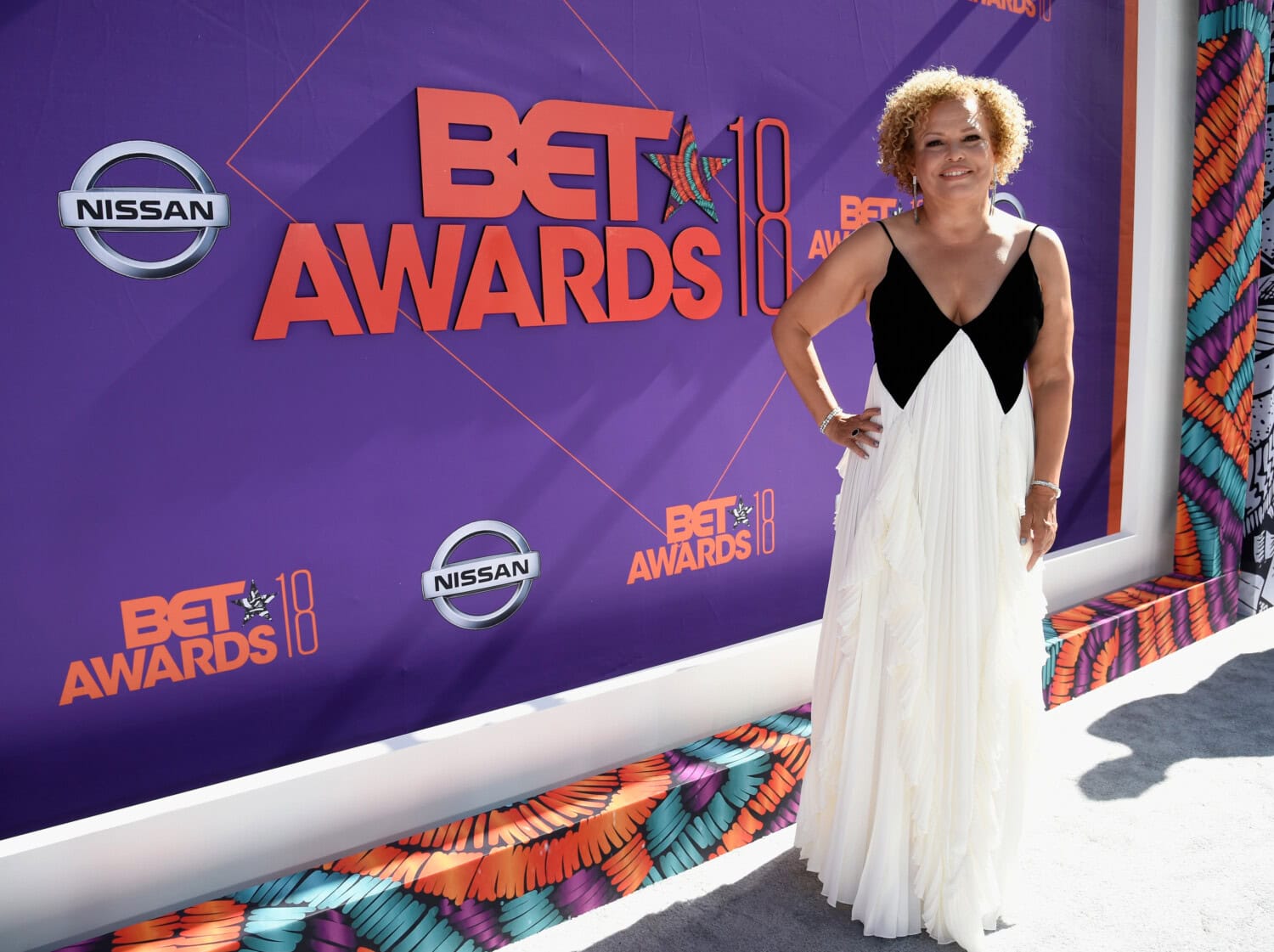
When I hear people in boardrooms say, ‘it’s so hard to find Black folks and Asians,’ it’s like, it’s not hard — You just have to focus on and have someone in HR really focus on it and make it a full-time position. You’re seeing a lot more diversity and inclusion heads. You’re also seeing states having regulations requiring [a] number of women on boards and number of people of color. You’re seeing the SEC look closely at it with the new social impact regulations and diversity and inclusion requirements. It’s something that’s gonna make our culture and our society better. I think consumers are looking to companies to take a stand, not just in their advertisement or their charitable contributions, but also in the way their leadership looks and the way their boardroom looks.
DB: What especially excites you about the future of entertainment, especially when it comes to women?
DL: I think what excites me the most is the proliferation of platforms and the demand for content in the entertainment space. Five years ago, who would’ve known we’re looking at Apple TV, Paramount+, and Peacock, and each of these platforms provide more opportunities for women and for people of color, so that’s what excites me the most. I just really hope that the door doesn’t close, that this recent popularity of programming targeted to women and targeted to people of color continues because we all know the door can close very quickly.
There’s so many women directors now. You look at Gina Prince-Bythewood, and what she did with The Woman King. You look at what Reese Witherspoon is doing, and there’s so many talented women; there always have been so many talented women who just need an opportunity. We’ve come a long way since I was a kid and we only had three broadcast networks. I know that shows my age, but we’ve gone through cable, we’ve gone through online, and now we have streaming. I’m really excited about the future and the number of opportunities. I hope that continues to grow.
DB: What are the hopes of Debra Lee post-BET, and what’re your hopes for the future of BET post-Debra Lee?
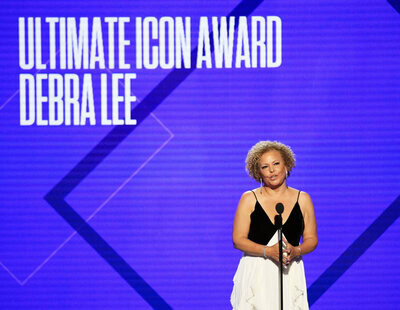
DL: I’ll take Debra Lee first ’cause she’s easier. I hope I will have opportunities to continue to impact the media industry, but also other industries. I’ve always had an interest in fashion, I had an interest in starting businesses, so I’m always looking for great opportunities and I’m in a place now where people bring them to me. I’m in that part of my life where I can focus on what I’m passionate about and not have to be the productive one, managing the companies, but can be an investor or sit on the board. I’m interested in those kind of opportunities and just enjoying life. I’ve literally retired, but not really so I’d like to find more time to enjoy travel and being with my family.
For BET-post Debra Lee, I wanna see BET continue to produce great programming, and the company has been dedicated to that for so long. I know it’s an interesting time because Paramount has announced they’re interested in selling BET, so a lot of it’s gonna depend on who purchases it. I hope BET continues to grow, continues to offer people of all color opportunities — women especially, because that’s something I took pride in. I just hope it continues to be a well-respected branch in our world and a global brand. I know it’s growing so much on the global level.